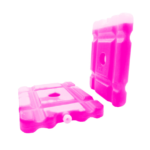In today’s fast – paced digital era, the world of food delivery has burgeoned into a thriving industry, bringing an array of fresh, scrumptious meals right to our doorsteps with just a simple click. Amidst this bustling ecosystem, ice packs quietly yet indispensably hold the reins of food quality preservation. These unobtrusive cooling allies are the unsung champions that ensure your culinary delights arrive in peak condition, ready to tantalize your taste buds. But what exactly are these ice packs tailored for food delivery, and how do they perform their temperature – regulating feats? Let’s embark on a detailed exploration.
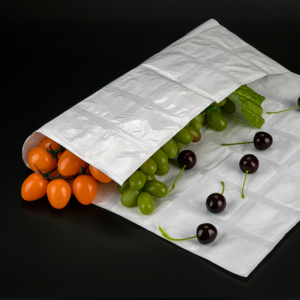
The Indispensable Role of Ice Packs in Food Delivery
Food delivery has seamlessly woven itself into the fabric of modern living, granting us the luxury of savoring diverse cuisines from the comfort of our homes. لكن, the journey from the kitchen to the customer’s table is fraught with challenges, especially when it comes to maintaining the integrity, freshness, and flavor of the food. This is precisely where ice packs emerge as the knight in shining armor. Whether it’s a box of delicate sushi, a tray of freshly – baked, aromatic pastries, or a package of premium frozen steaks, ice packs act as the vigilant guardians, keeping the food at the optimal temperature. By doing so, they ward off spoilage, preserve the rich flavors, and most importantly, uphold food safety standards.
Consider the scenario of ordering a vibrant, nutrient – rich salad. Without the presence of an ice pack, the crisp lettuce leaves would quickly succumb to the heat, wilting and losing their delightful crunch. The juicy tomatoes would turn soft and mushy, and the overall allure and quality of the salad would be severely diminished. But with a well – placed ice pack nestled within the delivery bag, the salad remains as fresh as if it were just prepared, with every ingredient retaining its original texture and flavor, ready to be relished.
Types of Ice Packs for Food Delivery
Gel – Filled Ice Packs
Gel – filled ice packs have firmly established themselves as a favored option in the realm of food delivery. These packs are filled with a meticulously formulated gel that exhibits an impressively high heat – capacity. This unique gel has an insatiable appetite for heat, capable of absorbing substantial amounts of thermal energy from the surrounding environment within the delivery container. As it does so, it creates a frigid micro – climate, ensuring that the food remains cool for an extended duration. The gel’s inherent flexibility is another remarkable trait, allowing it to effortlessly adapt to various shapes and contours. This makes it a breeze to fit these ice packs into a wide range of delivery containers, whether they are small, compact boxes or larger, more irregularly shaped packages. علاوة على ذلك, gel – filled ice packs are typically crafted from non – toxic materials, providing an iron – clad guarantee that the food they safeguard remains uncontaminated and safe for consumption.
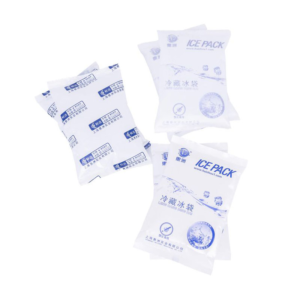
Reusable Ice Packs
Reusable ice packs are a paragon of environmental consciousness and long – term cost – effectiveness. Constructed from robust, طعام – grade materials such as high – quality silicone or thick, durable plastics, these ice packs are built to endure repeated use. After each delivery run, a simple cleaning process followed by refreezing readies them for their next cooling mission. Some advanced reusable ice packs come equipped with innovative insulating covers, which serve as an additional layer of protection. These covers significantly enhance the ice pack’s cold – retention capabilities, enabling it to maintain a low temperature for even longer periods. Such ice packs are particularly well – suited for delivery services that operate on a regular schedule, as they offer substantial savings over time and contribute to a more sustainable delivery ecosystem.
Disposable Ice Packs
Disposable ice packs offer unrivaled convenience for one – time use scenarios. These packs are pre – frozen at the manufacturing stage and are ready to be deployed immediately upon opening the package. This makes them the go – to choice for short – distance food deliveries or for instances where the ice pack is not expected to be reused. In the world of food delivery, disposable ice packs find their niche in transporting small, perishable items. Think of a single – serving, decadent dessert or a box of artisanal, hand – crafted chocolates. Their ease of use, combined with their cost – effectiveness, makes them an ideal solution for these types of delicate and short – haul deliveries.
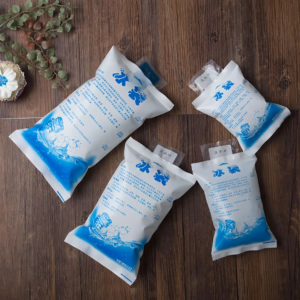
Key Features to Consider When Choosing Ice Packs
Cold – Retention Time
The length of time an ice pack can maintain its cold temperature is a make – or – break factor, especially for long – distance deliveries or those occurring in sweltering hot weather conditions. For such situations, you’ll need ice packs with exceptional extended cold – retention capabilities. Gel – filled ice packs, with their high – capacity gels, and certain high – end reusable ice packs are renowned for their ability to maintain a low temperature for hours on end, and in some cases, even days. When making your selection, take into account the average delivery time in your area. If you’re in a region where deliveries often take several hours or if you’re dealing with a long – distance shipping route, opting for ice packs with longer cold – retention times is crucial to ensure the food’s freshness is preserved throughout the journey.
Safety and Non – Toxicity
Given that ice packs are in close proximity to the food we consume, safety is of paramount importance. It is imperative to ensure that the ice packs you choose are made from non – toxic materials. This is a non – negotiable requirement as any potential contamination from the ice pack could render the food unsafe for consumption. The vast majority of ice packs designed specifically for food delivery are crafted from materials that have been rigorously tested and approved for direct food contact. لكن, it’s always prudent to double – check the product specifications and look for relevant certifications or safety markings to provide an extra layer of assurance.
Size and Shape
The size and shape of the ice pack are equally crucial considerations. You need an ice pack that is not only a perfect fit for the delivery container but also complements the size and shape of the food items being transported. The goal is to achieve maximum cooling coverage while minimizing the space occupied within the container. Some ice packs are ingeniously designed with a slim and flat profile, making them ideal for slipping into tight spaces or for packing around delicate, irregularly shaped food items. على الجانب الآخر, larger ice packs are better suited for bigger food orders, where more cooling power is required to maintain the temperature of a larger quantity of items.
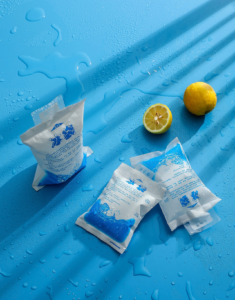
How to Use Ice Packs Effectively in Food Delivery
قبل – freezing
Before putting ice packs to work, it is essential to pre – freeze them for the recommended duration. This step is the key to unlocking their maximum cooling potential. Most ice packs require a minimum of 12 – 24 hours in the freezer to reach their optimal cooling capacity. By allowing sufficient time for pre – freezing, you can rest assured that the ice packs will be able to deliver the necessary cooling effect throughout the entire food delivery process, keeping the food at the desired temperature from the moment it leaves the kitchen until it reaches the customer’s hands.
Placement in the Delivery Container
Proper placement of the ice packs within the delivery container is the linchpin for achieving efficient heat transfer and maintaining precise temperature control. Place the ice packs in close proximity to the food items. This close – quarters arrangement enables the cold to quickly and effectively transfer from the ice pack to the food, minimizing the risk of temperature fluctuations. To further enhance the cooling effect, you can employ insulating materials such as bubble wrap or foam. Wrapping the food in bubble wrap and strategically placing the ice pack inside creates a thermal barrier, trapping the cold air inside and keeping the external heat at bay.
Monitoring the Temperature
For high – value or highly temperature – sensitive food items, using a thermometer or a sophisticated temperature – monitoring device is highly advisable. These tools allow you to closely monitor the temperature inside the delivery container in real – time. By keeping a vigilant eye on the temperature, you can promptly detect any deviations from the safe temperature range. If the temperature starts to creep above the recommended level, you can take immediate corrective actions. This could involve adding more ice packs to boost the cooling power or improving the insulation of the delivery container to prevent further heat infiltration.
In conclusion, ice packs for food delivery are the cornerstone of the modern food delivery ecosystem. By comprehensively understanding the different types of ice packs, the key features to prioritize when choosing them, and the best practices for their effective use, food delivery services can consistently ensure that their customers are greeted with fresh, high – quality food with every order. Whether you’re a food delivery business owner striving to provide top – notch service or a consumer with a penchant for online food orders, a solid knowledge of ice packs can significantly elevate the quality of your food delivery experience.



















